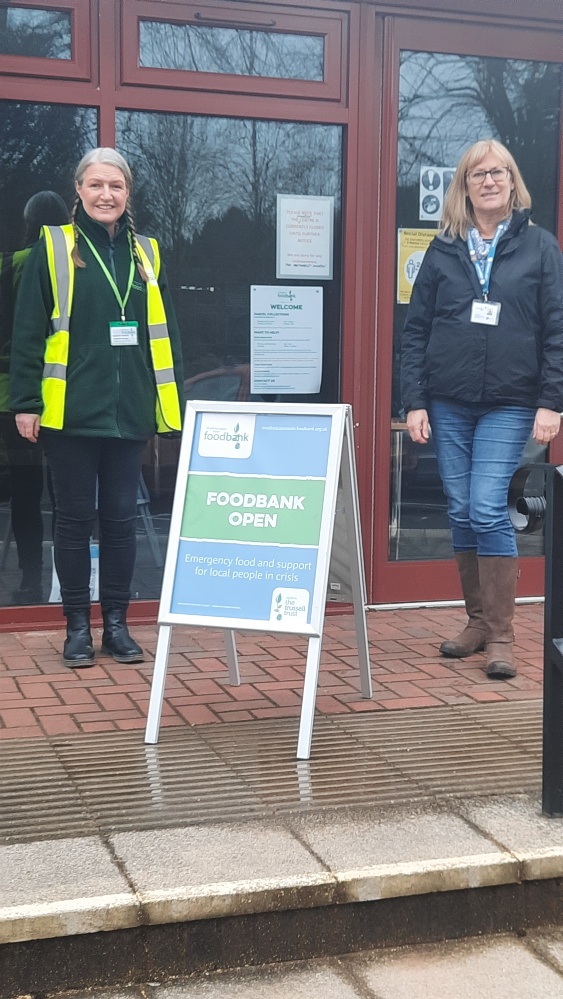This week, Employment Rights Awareness Week, Citizens Advice across Warwickshire will be focusing on making sure workers across the county are aware of basic employment rights and recent changes to employment law which might affect them.
Understanding employment rights, and how to exercise them, is vital to surviving and thriving in work. Whether referring to statutory rights or contractual rights it is in every workers’ best interests to know about what they are entitled to as a matter of law.
It is also important to know where to turn to find out more about these rights and how to exercise them; especially if you are in part-time, low paid, temporary or insecure work.
All employment rights are either statutory (applicable to everyone) or contractual (specific to your employment contract).
They can apply differently to workers in different circumstances so it is important to understand what your ‘employment status’ is and what you are entitled to.
Contractual rights can only build on statutory rights, they cannot undermine them.
For information on all aspects of your status and rights as an employed person go to the Citizens Advice website at https://www.citizensadvice.org.uk/work/ and search for what you need.
Recent Changes in Employment Law which might affect you (from April 6, 2024).
There have been changes to a number of statutory employment rights coming into force recently, prompting the need for this update. Below we make reference to four of them. Please find out more if any apply to you.
- Paternity Leave.
Employees taking statutory paternity leave (and pay, if they are eligible) can now split their two weeks’ entitlement into two separate one-week blocks, rather than having to take them both together. They can also take their two weeks at any time within the first year after their child’s birth, rather than within only the first eight weeks after birth as previously required.
Employees now have to give employers 28 days’ notice for each week of leave, down from 15-weeks’ notice previously, before taking leave.
For more on this go to https://www.acas.org.uk/paternity-rights-leave-and-pay/taking-paternity-leave .
- Protection against redundancy for pregnant workers.
Employees taking certain types of parental leave now have more protection from redundancy for at least 18 months. This protection means that if their role is made redundant their employer must give them first refusal of any other equivalent vacancies.
Protection now begins on the day the employer is first notified of the employee’s pregnancy and ends 18 months after the date of the child’s birth.
For more on this go to https://www.employmentlawwatch.com/2024/02/articles/employment-uk/uk-redundancy-protection-significant-changes-from-april-2024/ .
- Carers’ Leave.
Employees are now entitled to take one week of unpaid leave a year if they have caring responsibilities.
This applies to any employees who are caring for a spouse, civil partner, child, parent or other dependant who needs care because of a disability, old age or any illness or injury likely to require at least three months of care.
The leave entitlement is available from the first day of employment with no qualifying period.
For more information go to https://www.carersuk.org/help-and-advice/work-and-career/the-carers-leave-act-2023/ .
- Flexible working rule changes.
Employees can now make two rather than one request a year for flexible working, and the deadline for employers to respond to requests has been reduced from three to two months.
Employers will also have to explain the reasons for denying any request, and employees no longer have to explain the impact of their request. However, the list of reasons employers can use to deny requests is remaining the same, including factors such as cost to the business or impact on quality, performance or ability to meet customer demand.
For more on this go to https://www.personneltoday.com/hr/flexible-working-changes-2024-law-act-legislation-regulations-hr/ .
The changes referenced above are not the only changes to employment law expected this year. Go to https://commonslibrary.parliament.uk/what-employment-laws-are-changing-from-april-2024/ for a review of what more might be coming our way in 2024.
The purpose of employment rights is to protect and empower workers against dangerous or damaging working practices and poor employer behaviour. In extreme cases such behaviour can amount to exploitation or versions of ‘modern slavery’.
To find out more about what ‘modern slavery’ is, and how to spot and report it, go to https://nationalcrimeagency.gov.uk/what-we-do/crime-threats/modern-slavery-and-human-trafficking .
Finally, for those of us who find ourselves in a difficult situation at work and don’t immediately know where to turn, there is free expert support out there providing information, advice, guidance and/or advocacy services.
The Advisory Conciliation and Arbitration Service (ACAS) provides a free confidential helpline for anyone who needs employment law or workplace advice, including employers, employees and workers. They can talk through:
- any work-related problem or question you have
- what the law says and how it relates to you
- good practice at work
- your options, including any risks and benefits.
You do not have to give any personal details. The helpline number, open Monday-Friday 8am-6pm, is 0300 123 1100.
To speak to them in another language, call the helpline above and ask for an interpreter. They can provide one straight away.
More information on their service can be found at https://www.acas.org.uk/advice .
The Pay and Work Rights Helpline and Complaints Service provides a channel for you to make complaints about your employer or employment agency directly to the appropriate regulating agency; for example, to HMRC for issues related to the National Minimum / National Living Wage.
More information on this service can be found at https://www.gov.uk/pay-and-work-rights .
Membership of a Trade Union will also guarantee access to employment advice and support.
For general advice on what to do if you have a problem at work go to: https://www.citizensadvice.org.uk/work/get-help/what-help-can-i-get-with-a-problem-at-work/ .
Reliable, secure, well paid work is a path out of poverty but only if workers are treated with respect in and out of the workplace. Knowing your rights, exercising your rights and protecting your interests will help you survive and thrive in work.

